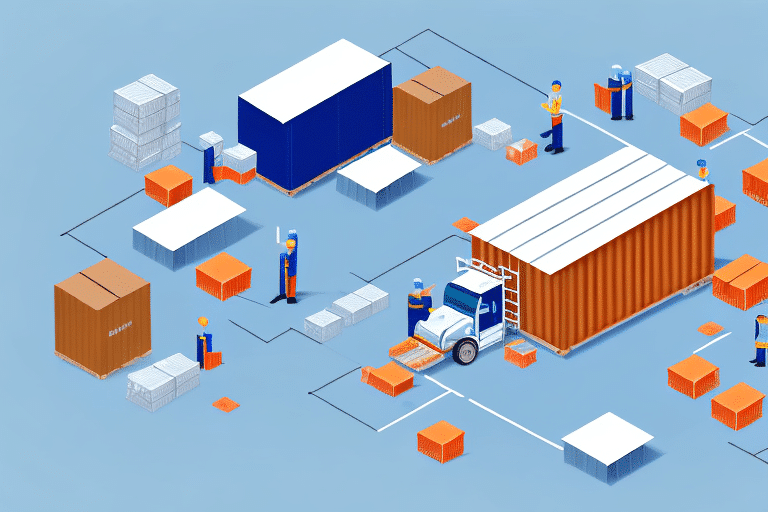Streamlining Retail Fulfillment for Maximum Efficiency
In today’s rapidly evolving retail landscape, efficient fulfillment processes are essential for maintaining competitiveness and profitability. As consumer expectations surge, retailers must optimize their supply chains and fulfillment operations to meet demands swiftly and accurately.
The Importance and Benefits of Efficient Retail Fulfillment
Efficient retail fulfillment plays a crucial role in ensuring customer satisfaction, reducing operational costs, and enhancing sustainability. Effective fulfillment processes enable retailers to manage inventory, process orders, and deliver products with speed and accuracy, which are critical factors in retaining customers and driving repeat business.
- Enhanced Customer Satisfaction: Timely and accurate deliveries boost customer trust and loyalty.
- Cost Reduction: Streamlined operations minimize waste and lower operational expenses.
- Increased Revenue: Efficient fulfillment supports higher order volumes and sales growth.
- Sustainability: Optimized processes reduce the carbon footprint by minimizing transportation and packaging waste.
According to a Statista report, global retail e-commerce sales are projected to reach $6.54 trillion by 2023, highlighting the imperative for retailers to enhance their fulfillment strategies to capture a portion of this expanding market.
Strategies for Optimizing Retail Fulfillment
Adopting Advanced Technologies
Implementing Warehouse Management Systems (WMS), Order Management Systems (OMS), and Transportation Management Systems (TMS) can significantly enhance the efficiency of fulfillment operations. Additionally, automation through robotics and automated picking systems can accelerate order processing and reduce errors.
Process Optimization and Lean Practices
Employing lean methodologies to identify and eliminate inefficiencies within the fulfillment process can lead to significant cost savings and improved productivity. Techniques such as Just-In-Time (JIT) inventory management ensure that products are available when needed without overstocking, reducing storage costs and waste.
System Integration for Enhanced Visibility
Integrating various systems involved in the supply chain, such as inventory, order processing, and shipping, provides real-time visibility into operations. This integration facilitates better decision-making, improves coordination across departments, and minimizes the risk of errors.
Ensuring Accuracy and Quality Control
Maintaining high accuracy in order fulfillment is vital for customer satisfaction. Implementing automated quality checks and continuous monitoring can help reduce errors. Additionally, regular staff training and process audits ensure that quality standards are consistently met.
Enhancing Customer Satisfaction
Offering Flexible Delivery Options
Providing multiple delivery choices, such as same-day delivery, click-and-collect, and parcel locker services, caters to diverse customer preferences and enhances the shopping experience.
Real-Time Order Tracking
Offering real-time tracking information empowers customers by keeping them informed about the status of their orders, thereby increasing transparency and trust.
Efficient Returns Management
A streamlined returns process is essential for maintaining customer satisfaction. Simplifying returns through user-friendly platforms and prompt processing ensures that customers remain loyal even after a return.
Managing Costs and Inventory Effectively
Optimized Inventory Management
Utilizing real-time inventory tracking and demand forecasting tools helps maintain optimal stock levels, preventing both overstocking and stockouts. This balance reduces holding costs and ensures product availability.
Cost-Effective Packaging Solutions
Adopting sustainable and cost-effective packaging materials can lower expenses while appealing to environmentally conscious consumers. Innovations in packaging design can also enhance packing efficiency.
Automation to Enhance Productivity
Automating repetitive tasks such as picking, packing, and sorting increases productivity and reduces labor costs. Automation also improves order accuracy, leading to fewer returns and happier customers.
Overcoming Challenges in Retail Fulfillment
Handling Peak Demand Periods
Seasonal spikes and promotional events can place significant strain on fulfillment operations. Preparing for these periods by increasing inventory, hiring temporary staff, and optimizing workflows ensures that demand surges do not compromise efficiency.
Managing Complex Supply Chains
Global supply chains present challenges such as longer lead times, varied regulatory requirements, and logistical complexities. Enhancing supply chain visibility and employing robust management strategies can mitigate these issues.
Ensuring System Integration and Data Accuracy
Disparate systems can lead to data silos and errors. Integrating systems and maintaining data accuracy through regular audits and updates are critical for smooth fulfillment operations.
Future Trends and Innovations in Retail Fulfillment
Artificial Intelligence and Machine Learning
AI and machine learning are transforming retail fulfillment by improving demand forecasting, personalizing customer experiences, and optimizing delivery routes.
Drones and Autonomous Vehicles
The adoption of drones and autonomous vehicles for delivery is increasing, offering faster and more cost-effective shipping solutions, especially for last-mile deliveries.
Sustainable Fulfillment Practices
Retailers are increasingly adopting sustainable practices such as using electric delivery vehicles and eco-friendly packaging to meet consumer demand for environmentally responsible operations.
Measuring Success and Scaling Operations
Key Performance Indicators (KPIs)
Tracking KPIs like order accuracy, fulfillment speed, inventory turnover, and customer satisfaction scores allows retailers to assess the effectiveness of their fulfillment strategies and identify areas for improvement.
Scalability Strategies
As retailers grow, scalability becomes crucial. Investing in scalable infrastructure, such as modular warehouses and cloud-based systems, ensures that fulfillment operations can expand efficiently to meet increasing order volumes.
Continuous Improvement
Adopting a culture of continuous improvement ensures that fulfillment processes evolve in response to changing market conditions and technological advancements, maintaining efficiency and competitiveness.
Conclusion
Optimizing retail fulfillment is essential for retailers aiming to stay competitive and deliver exceptional customer experiences in today’s dynamic market. By embracing advanced technologies, implementing best practices, and focusing on sustainability, retailers can streamline their fulfillment processes to meet growing consumer demands effectively. Addressing common challenges and staying abreast of industry trends will further solidify a retailer’s market position, driving long-term success and customer loyalty.




















